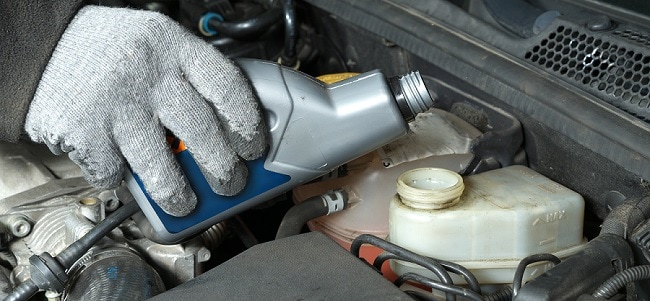Owning a luxury vehicle like a Mercedes-Benz or BMW is an investment in both performance and style. To ensure these high-end vehicles continue to perform optimally, regular maintenance is crucial, and fluid checks are among the most vital aspects of this care. Fluid checks ensure that the engine, transmission, brakes, and other essential systems operate efficiently and prevent costly repairs down the line. Mercedes-Benz and BMW have engineered their vehicles with precision, and proper fluid management is key to keeping these cars running smoothly for years.

One of the most important fluids to monitor is the engine oil. Engine oil is essential for lubricating the internal components of the engine, reducing friction, and preventing overheating. For Mercedes-Benz and BMW owners, ensuring that the oil level is correct and the oil itself is in good condition is critical to avoid engine wear or even catastrophic failure. Both manufacturers typically recommend oil changes every 10,000 to 15,000 miles, depending on the specific model and driving conditions. Regular oil checks help to avoid engine damage and maintain optimal performance.
Transmission fluid is another vital fluid that deserves attention. It lubricates the components of the transmission, facilitating smooth shifting between gears. Whether in a Mercedes-Benz or BMW, low or degraded transmission fluid can result in rough shifts, slipping gears, or even mercedes and bmw fluid check transmission failure. While newer models may feature sealed transmissions that reduce the need for frequent fluid changes, it is still important to monitor fluid levels, especially during routine maintenance. In some cases, a simple fluid replacement can enhance the vehicle’s overall driving experience and prevent costly transmission repairs.
Coolant, also known as antifreeze, plays a significant role in regulating the engine temperature, especially during long drives or in hot climates. Both Mercedes-Benz and BMW vehicles, known for their high-performance engines, require precise temperature control. If coolant levels drop or the fluid becomes contaminated, the engine may overheat, leading to severe damage. To avoid such issues, owners should regularly check coolant levels and ensure that the fluid is in good condition. Both brands recommend using specific coolant types that are engineered for their engines, ensuring optimal performance.
The power steering fluid is another essential fluid to check regularly. Power steering systems rely on fluid to provide smooth and responsive steering, which is crucial for maneuvering these precision-engineered vehicles. Low power steering fluid levels can cause the steering wheel to become stiff or unresponsive, potentially compromising safety. Furthermore, contaminated fluid can damage the power steering pump and other components, leading to costly repairs. Keeping an eye on the power steering fluid ensures that the vehicle’s handling remains responsive and safe.
Lastly, brake fluid is one of the most critical fluids for overall safety. It ensures that the braking system responds promptly when needed. Both Mercedes-Benz and BMW use advanced braking technologies that depend on high-quality brake fluid to function effectively. Over time, brake fluid can absorb moisture, reducing its effectiveness and potentially leading to brake failure. Regular brake fluid checks are crucial, as compromised fluid can result in decreased braking power, posing a serious safety risk.
In conclusion, fluid checks are an essential part of maintaining the performance and longevity of Mercedes-Benz and BMW vehicles. Regularly checking engine oil, transmission fluid, coolant, power steering fluid, and brake fluid helps to ensure that these luxury cars continue to perform at their best. By adhering to the recommended maintenance schedule and using the correct fluids, owners can protect their investment and enjoy the performance and reliability that Mercedes-Benz and BMW are known for.
Leave a Reply